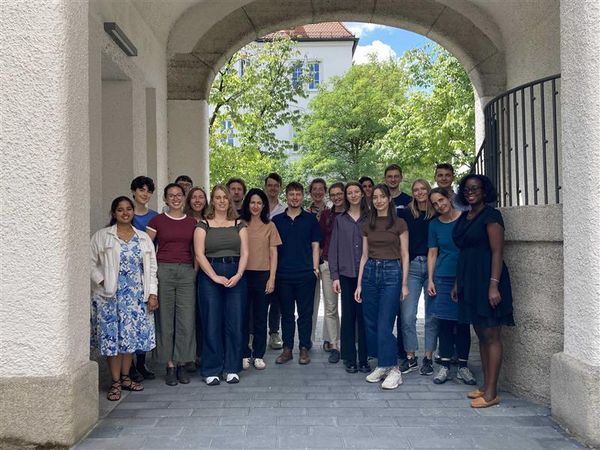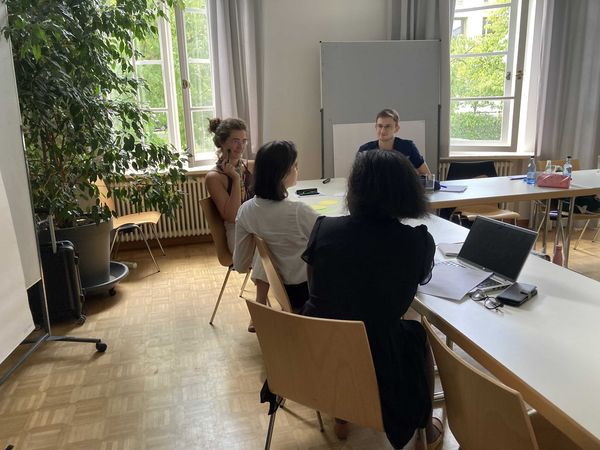RHUNE Neuroethics Summer School 2025 (LMU Munich)
RHUNE (Research Hub Neuroethics)
The Research Hub Neuroethics is an infrastructure for interdisciplinary exchange in the dynamic field of neuroethics research in Germany and internationally.
RHUNE aims to promote ELSA (Ethical, Legal, and Social Aspects) research in neuroscience in Germany. It has several objectives: training young scientists, collaborating with industry and other decision-makers, developing future skills while strengthening international connections, and communicating research results to the public. The subproject of Kerstin Ritter and Stella Namuganza at Hertie AI focuses focuses on meta research at the intersection of AI and neuro science. A meta-research study will be conducted to identify ELSA challenges in the application of AI in neuroscience from different perspectives and to identify possible solutions. In addition, a research hub will be established with the aim of stimulating and documenting interdisciplinary discussions between neuroscientists, AI researchers, and philosophers, and making the findings available to a broad audience.
RHUNE Neuroethics Summer School 2025 (LMU Munich)
One of the objectives of RHUNE is scientific networking both within and outside Germany. This summer, Stella had the opportunity to attend a Neuroethics Summer School organized by the RHUNE project at LMU Munich. The 2.5-day interdisciplinary program explored the intersections of neuroscience, philosophy of mind, and the ethical, legal, and social aspects (ELSA) of neurotechnologies. The program included exciting lectures and workshops by leading scientists from Germany, including: Prof. Dr. Simon Jacob, Prof. Dr. Bert Heinrichs, Prof. Dr. Marcello Ienca, PD Dr. med. Annette Rogge, Prof. Dr. Philipp Kellmeyer, Andreas Wolkenstein, Prof. Dr. Ophelia Deroy, and Prof. Dr. Stephan Sellmaier.
The sessions were highly interactive and provided in-depth insights into the state of the art in implantable brain–computer interfaces (BCIs) as well as global perspectives on neuroethics and policy. Participants also engaged in constructive discussions on complex and controversial issues, including assisted suicide, neuroreductionism, the possibility of mind-reading, and the ethical implications of participation in neuroethics research.
“The experience offered a unique platform to critically reflect on the ethical, philosophical, and societal challenges that come with rapid advances in neuroscience.”

